Institutional Organizational Analysis - Change and Transformation - 5 ECTS
Faculty
Hebrew University of Jerusalem
Professor Renate Meyer
WU Vienna/Department of Organization, CBS
Associate professor Susanne Boch Waldorff
Department of Organization, CBS
Department of Organization, CBS
The PhD student must be working on a research project involving the institutional sociological approach or – if this is not the case – be willing to explore if the approach could be applied. Naturally, the idea is not to push students into becoming institutional theorists, but to make them reflect upon their projects from this theoretical perspective.
The PhD student is required to present a five-pages (maximum) written presentation in which s/he relates the curriculum literature in the course to his/ her project. The presentation must include specific references to the literature applied. Deadline for submission of course paper is 25 August 2023. This written presentation will be shared with other students and students will present their project in the course and will receive feedback on it.The student presentation should provide material for discussion in minor groups during the course, and the student must be willing to participate in discussions of other presentations.
It is a precondition for receiving the course diploma that the student attends the entire course.
The goal of the course is to give participants a broad overview of organizational institutionalism including its development over time and its application to different empirical phenomena. Students will also develop their capacity to use the approach in their own empirical work.
The course focuses on the school within institutional theory that is rooted in sociology. We trace the development of the theory from its conception to its most recent developments and applications in organizational analysis. We explore historical change and transformations in the meaning of organizational structures and practices and analyze how institutions are constructed and diffused; how institutional elements are incorporated into and translated in organizations as well as how institutional change and institutional entrepreneurship influence specific organizational fields. We discuss diverse methodological approaches to the study of institutionalization processes – macro- as well as micro approaches – and explore the applicability of institutional theory and methods to the empirical projects of course participants.
Lectures with workshops, dialogues and student discussions.
Lecture plan
Classic and new institutional theory
Empirical findings on diffusion and decoupling
Project discussions
Institutional fields and transformations
Institutional change and multiple institutional logics
Project discussions
Sept. 20 (9-17)
Translation of ideas
Institutional work and entrepreneurship
Project discussions
Applying institutional theory in practice
Project discussions
Learning objectives
Participants get insights into the historical development of organizational institutionalism and into the most recent approaches to organizational stability, change and transformation. The participants also learn how to use the theory in empirical work, especially their own projects.
N/A
Information about the Event
Date and time Monday 18 September 2023 at 09:00 to Friday 22 September 2023 at 17:00
Registration Deadline Friday 25 August 2023 at 23:55
Location
Kilen - room KL4.74 (fourth floor)
Kilevej 14A
Frederiksberg
DK-2000
 Loading
Loading



